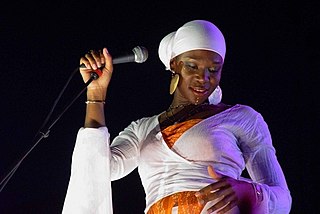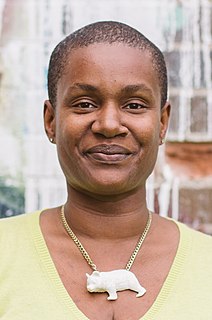A Quote by Peter Guber
We tend to become social core groups, whatever our similar interest and background where we came through. It tends to be a filter through which people see themselves. It can be all different ethnicities. They can see themselves as San Franciscans, or Warriors fans. You want to build a tribe of viral advocates for that team.
Related Quotes
The tribe is whatever we believe it is. If we say the tribe is all the Little Ones in the forest, and all the trees, then that is what the tribe is. Even though some of the oldest trees here came from warriors of two different tribes, fallen in battle. We become one tribe because we say we're one tribe." Ender marveled at his mind, this small raman [member of another sentient species]. How few humans were able to grasp this idea, or let it extend beyond the narrow confines of their tribe, their family, their nation.
People in big studios are like, 'People want to see other people who are skinny and happy and amazing.' But I think, nowadays, they are realising that what sells is real people from all different backgrounds, ethnicities, cultures and size. People want to see themselves represented on screen, and it's a real cool thing for everyone.
It is part of the pholosophic dullness of our time that there are millions of rational monsters walking about on their hind legs, observing the world through pairs of flexible little lenses, periodically supplying themselves with energy by pushing organic substances through holes in their faces, who see nothing fabulous whatever about themselves.
There's a secret to get through loss, pain and grief. If we're alone we can't see who we are. When we join the club, other people become the mirror. Through them, we see ourselves and gain an understanding of what we're going through. Then slowly, real slowly, we learn to accept who we see in the mirror. Then you become the mirror for them; by being honest about who you are, you'll help them learn to love and accept themselves.
In our age of individualism, we see computers as ways through which we can express our individuality. But the truth is that the computers are really good at spotting the very opposite. The computers can see how similar we are, and they then have the ability to agglomerate us together into groups that have the same behaviours.
We have mirror neurons that mirror other human beings. In other words, if I'm smiling it tends to make other people with me smile also. Whether I'm happy or lonely, I will tend to have happy or lonely friends. The same thing happens with actions; if I make an act of generosity it tends to be passed on down through society. So I see small groups as being very important in having an effect on large groups.
I'm always trying to tell fans to love themselves. I see them going through a ton of hardships on Twitter and being bullied. It's really important and easier said than done to take care of yourself. A lot of people put themselves out for others and don't really think about mending themselves. Sometimes, they get a little lost that way.
If you are doing a piece about somebody, even if you admire them tremendously and express that in the piece, express that admiration, if they're not used to being written about, if they're civilians, [...] they're not used to seeing themselves through other people's eyes. So you will always see them from a slightly different angle than they see themselves, and they feel a little betrayed by that.
You know how people are becoming sexually active way too early because they think it's going to be like it is in the movies. And people are not aware of their bodies in a certain way, because they are afraid to see themselves for who they are because they want to see themselves in someone else's shoes or whatever.




































